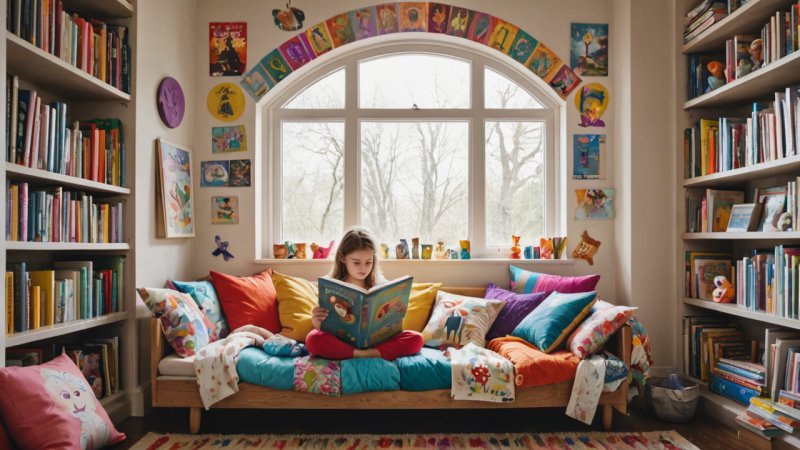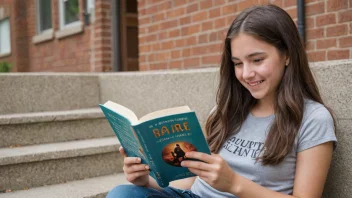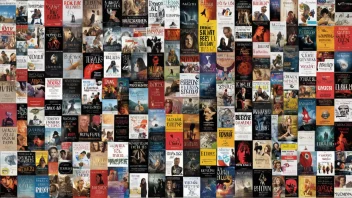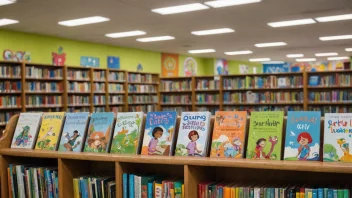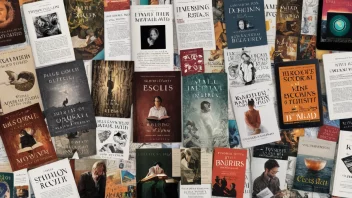In a fictional interview with Dr. Alice Storyteller, a renowned expert in children's literature and child psychology, we explore the vital role that children's books play in fostering imagination among young readers. Dr. Storyteller has spent over two decades researching the impact of storytelling on cognitive development and has published numerous articles highlighting the importance of imaginative play.
The Importance of Imagination in Childhood
Interviewer: Dr. Storyteller, can you explain why imagination is so crucial in a child's development?
Dr. Storyteller: Absolutely! Imagination is the bridge between reality and creativity. It allows children to explore new ideas, develop problem-solving skills, and understand different perspectives. Through imaginative play, they learn to empathize and navigate social situations, which are essential skills in their overall development.
How Children’s Literature Sparks Imagination
Interviewer: In your view, how does children's literature specifically contribute to this imaginative growth?
Dr. Storyteller: Children’s books are gateways to fantastical worlds. They introduce young readers to characters and scenarios that challenge their thinking. For instance, when a child reads about a brave little mouse facing a dragon, they are not just entertained; they are engaging with themes of courage and resilience. This interaction stimulates their imagination, encouraging them to envision their own stories and scenarios.
Key Elements of Imaginative Literature
Interviewer: What specific elements do you think are essential in children's literature that foster imagination?
- Vivid Imagery: Descriptive language paints pictures in the child's mind.
- Relatable Characters: Characters that reflect children's experiences help them connect emotionally.
- Open-Ended Stories: Books that leave room for interpretation or imagination encourage creative thinking.
- Adventure and Fantasy: Elements of adventure often propel children’s curiosity and desire to explore.
The Impact of Reading Aloud
Interviewer: How does reading aloud impact a child's imaginative capabilities?
Dr. Storyteller: Reading aloud is incredibly powerful. It creates an interactive experience where children can ask questions and express their thoughts. This dialogue can enhance their understanding and inspire them to create their own narratives. Research has shown that children who are read to regularly have richer imaginations and improved language skills.
Favorite Books that Build Imagination
Interviewer: Could you share some of your favorite children’s books that embody these qualities?
Dr. Storyteller: Certainly! Some classics include:
- The Very Hungry Caterpillar by Eric Carle – It’s simple yet imaginative.
- Where the Wild Things Are by Maurice Sendak – A fantastic exploration of emotions and adventure.
- The Phantom Tollbooth by Norton Juster – A brilliant blend of wordplay and imaginative journeys.
- Goodnight Moon by Margaret Wise Brown – A soothing bedtime story that sparks imagination.
These books not only tell a story but also invite children to create their own interpretations and fantasies.
Encouraging Imagination Beyond Books
Interviewer: How can parents further encourage imagination in their children, aside from reading?
Dr. Storyteller: Parents can foster imaginative thinking in various ways:
- Encouraging playtime that involves storytelling and role-playing.
- Providing art supplies and materials for creative projects.
- Engaging in discussions about the stories read, prompting children to think critically.
- Limiting screen time, allowing for more opportunities for imaginative play.
Future of Children’s Literature
Interviewer: What do you see as the future trends in children's literature that will continue to inspire imagination?
Dr. Storyteller: I believe we will see a rise in interactive storytelling, where technology meets traditional reading. This could include augmented reality experiences that bring stories to life. Additionally, diverse narratives that include various cultures and perspectives are crucial for broadening children's imaginations. The more stories they encounter, the more expansive their creative thinking becomes.
Final Thoughts on Imaginative Literature
Interviewer: Any final thoughts for our readers about the significance of children's literature?
Dr. Storyteller: Children's literature is not just about entertaining; it’s about nurturing future thinkers and creators. By fostering a love for reading, we are equipping children with the tools they need to envision a world beyond their own. Every book is an opportunity for a child to dream, explore, and imagine the possibilities.
